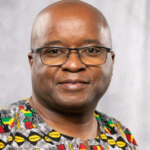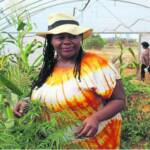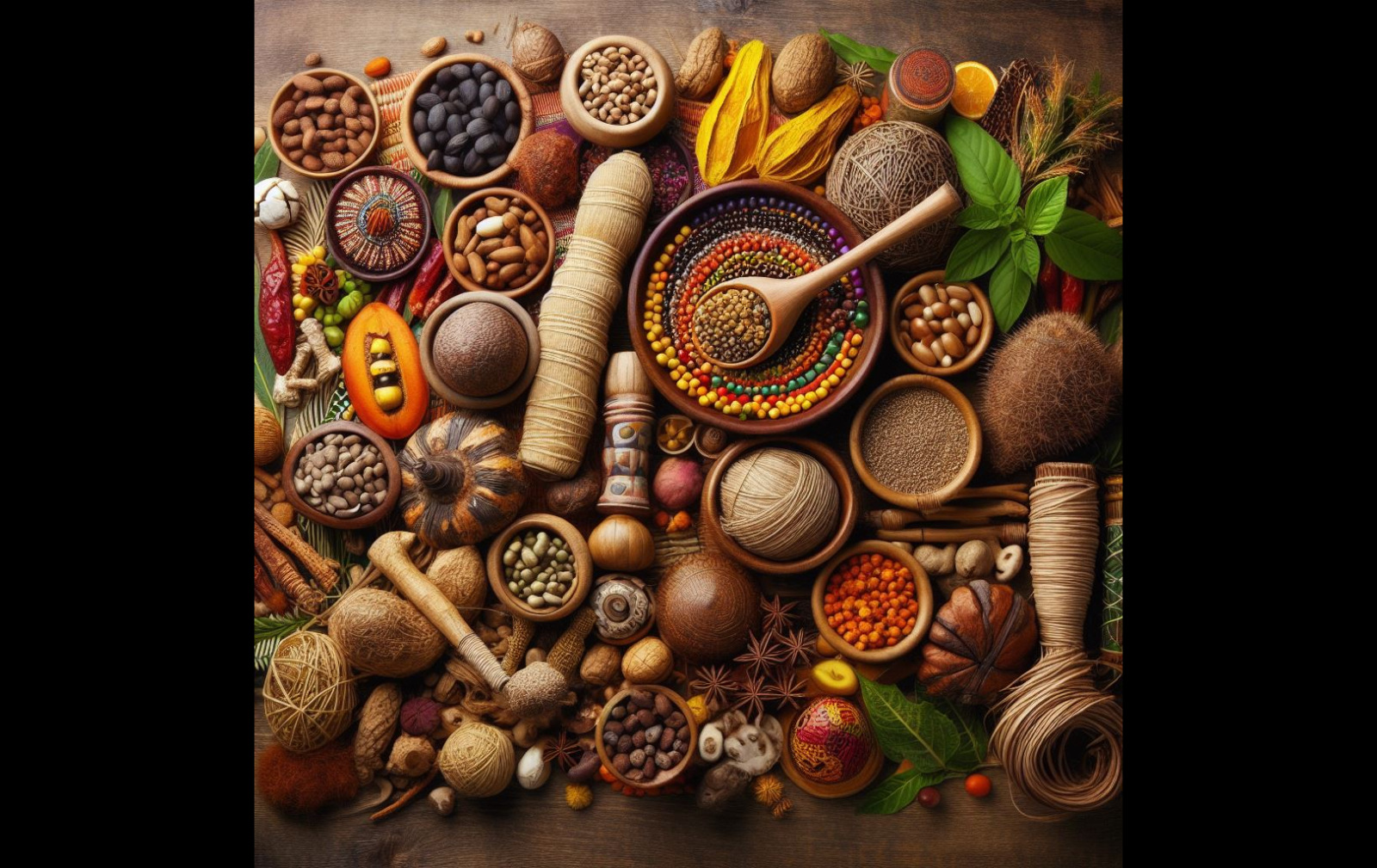The aim is to create a safe space for activists, artists, academics and intergenerational groups from various parts of the world to tell stories that generate energy for more conscious and sustainable futures. Each webinar is 1.5 hours long with about 30 minutes at the end for discussion. All webinars are recorded and the links can be found at the end of each event description.
(7) Webinar 12 November 2024 (Tuesday) at 11:00-12:30 South Africa & Finland time
The praxis of community transformation: organizing for life’s flourishing
In this webinar Lebo Seitshiro and Dr Gavin Andersson will discuss the work of Asase Harmony that is inspired by the challenge of catalysing activity for the regeneration of Africa’s rivers. Its programmes involve communities at different parts of the Limpopo River system and alongside the Okavango Delta, which is part of the Kavango Zambezi trans-frontier conservation area. The webinar speakers will discuss the methods adopted by Asase Harmony in undertaking this work. This has required learning from transformational experiences of four decades, the best of which have found expression in the notion of civic-driven change. It has also required decolonising aspects of ‘development’ practice which have privileged economic development at the expense of nature, and to provide space for indigenous knowledges which respect all life.
Lebo Seitshiro is a traditional healing practitioner. She has worked to catalyse transformative community action for the care of nature in different African countries. Her academic enquiry has included post-graduate studies in the fields of human ecology, international environmental law, and conservation leadership, and her ongoing learning includes an immersion in the Work That Reconnects and mindfulness practice. Lebo co-founded and leads Asase Harmony.
Dr Gavin Andersson has focused on popular development organisation, with particular interest in societal learning and methodologies involving large groups of people. Insights from activity theory have guided his approaches to community transformation which have brought innovations such as Kwanda, a reality TV show about community makeover, and the Community Work Programme in South Africa. He has brought the concept of unbounded organizing to the field of organisational behaviour. His work in Asase Harmony foregrounds the need to forge an organizational awareness that embraces other than human life. Read about Dr Andersson’s work in the following article: Organisation Workshop. Beyond the Workplace: Large Groups, Activity and the Shared Object.
(6) Webinar 6 August 2024 (Tuesday) at 10:00-11:30 South Africa time / 11:00-12:30 Finland time
African traditional crops and food production in South Africa: Opportunities and challenges
Colonisation disrupted our relationships with plants and traditional diets in Africa. People are pushed off the land to make way for plantations and settlements. Indigenous crops are replaced by imported monocrops needing large quantities of water, fertiliser and pesticides that damage the planet. Healthy traditional diets are stigmatised and replaced by highly processed cheap products generating large profits for the industrial food complex and poor health for citizens. Agroecology, climate and food justice movements are advocating for reclaiming indigenous crops and authentic healthy African diets.
Dr Ethel Phiri, researching the cultivation of indigenous and underutilised crops; Ms Sipamandla Manqele, CEO of an African food production company & Ms Mmabatho Portia Morudi, company’s Sustainability director; and Ms Siphiwe Sithole, a farmer and CEO of an organic farming business, will talk about their roles in the emerging food system in South Africa. They will discuss the opportunities and challenges they face in this exciting space and invite discussion from participants on the way forward. Dr Munya Saruchera, Senior Lecturer at Stellenbosch University is the organiser and chair of the panel.
 Chair:
Chair:
Dr Munya Saruchera (PhD Sociology) is a Senior Lecturer at Stellenbosch University with over 25 years of professional work experience in the social change and community development sector and an Ashoka Fellow. He worked with community seed banks and exchange networks of smallholder farmers in Malawi, South Africa, Zimbabwe and India. Read about Dr Saruchera’s work on Seeding Food Security.
Panellists:
 Dr Ethel E Phiri is a lecturer and researcher, Stellenbosch University. With a vision to place indigenous and neglected crops in the spotlight, Ethel’s research focus is on the sustainable production and protection of indigenous, underutilised, and emerging crops. Throughout her academic journey, Dr Phiri has exhibited a relentless pursuit of excellence in the field of indigenous crop research. She is currently the Editor-in-Chief of the interdisciplinary Journal of Underutilised Crops Research. She has over 30 publications and has supervised several postgraduate students at both masters and PhD levels.
Dr Ethel E Phiri is a lecturer and researcher, Stellenbosch University. With a vision to place indigenous and neglected crops in the spotlight, Ethel’s research focus is on the sustainable production and protection of indigenous, underutilised, and emerging crops. Throughout her academic journey, Dr Phiri has exhibited a relentless pursuit of excellence in the field of indigenous crop research. She is currently the Editor-in-Chief of the interdisciplinary Journal of Underutilised Crops Research. She has over 30 publications and has supervised several postgraduate students at both masters and PhD levels.
 Ms Sipamandla Manqele is co- founder and Commercial Director at Local Village Africa. She holds a Bachelor of Social Sciences degree majoring in Community Development and Business Management. Sipamandla was nominated as one of the South Africa’s top 200 Young People to watch in 2019 by Mail and Guardian newspaper and she is a One Young World Ambassador. Sipamandla is inspired by the African continent, its diverse cultures and its quest for social and economic unity. She wants to play a role in rural development and the transformation of the food system in Africa. More about Sipamandla’s work: text African wholefoods could boost food security, podcast Let Us Be Gracious And Kind, and her LinkedIn page
Ms Sipamandla Manqele is co- founder and Commercial Director at Local Village Africa. She holds a Bachelor of Social Sciences degree majoring in Community Development and Business Management. Sipamandla was nominated as one of the South Africa’s top 200 Young People to watch in 2019 by Mail and Guardian newspaper and she is a One Young World Ambassador. Sipamandla is inspired by the African continent, its diverse cultures and its quest for social and economic unity. She wants to play a role in rural development and the transformation of the food system in Africa. More about Sipamandla’s work: text African wholefoods could boost food security, podcast Let Us Be Gracious And Kind, and her LinkedIn page
Ms Mmabatho Portia Morudi is the co-founder and Sustainability director at Local Village Africa. She is a former DreamGirls International mentor and a One Young World ambassador, and was selected as one of the top 100 Brightest Young Minds and an Emerging Changemaker by Spark international. She has dedicated the last twelve years of her life educating remote rural communities in biodiversity conservation, apiculture and helping them derive a greater value from preserving nature as opposed to exploiting it and creating markets for their produce in order to improve their livelihoods. She founded the Thuo Nala mentoring programme for youth in rural communities, and is involved in projects addressing rural wildlife management and reforestation in South Africa, Mozambique and Zimbabwe.
 Ms Siphiwe Sithole is a South African farmer and founder of African Marmalade, a custodian and supplier of indigenous seeds, grower of indigenous crops, public speaker, coach in natural farming and an aggregator. She is a Chartered Marketer with extensive marketing experience from a wide range of industries in the corporate world. Her professional skills are in marketing, strategy, development, and management, advertising and branding. Read about Ms Sithole’s work: This Organic Farmer is Growing Vegetables for the African Expat Market and How Siphiwe became a praise singer for African foods.
Ms Siphiwe Sithole is a South African farmer and founder of African Marmalade, a custodian and supplier of indigenous seeds, grower of indigenous crops, public speaker, coach in natural farming and an aggregator. She is a Chartered Marketer with extensive marketing experience from a wide range of industries in the corporate world. Her professional skills are in marketing, strategy, development, and management, advertising and branding. Read about Ms Sithole’s work: This Organic Farmer is Growing Vegetables for the African Expat Market and How Siphiwe became a praise singer for African foods.
(5) Webinar 11 April 2024 at 10:00 South Africa time / 11:00 Finland time
Mass movement building for climate justice and food sovereignty in South Africa
Luci Coelho led a conversation with Awande Buthelezi about his experiences with Dr. Vishwas Satgar and many others in mass movement building for climate justice and food sovereignty in South Africa. Unfortunately Dr. Satgar could not join on account of health challenges related to long Covid.
The world’s first Climate Justice Charter (CJC) was taken to South Africa’s parliament on October 16th, 2020. It emerged from several years of grassroots campaigning by the South African Food Sovereignty Campaign and the Cooperative and Policy Alternative Centre. The CJC breaks with the normalisation rationalities of mainstream climate politics. Instead, it is a pluri-vision to address the legacies of apartheid, the current polycrisis and secure a just, livable and democratic South Africa. Grounding this is a new decolonial transformative politics that is re-imagining mass movement building, strategic politics, systems change through democratic systemic reforms and a climate emergency policy platform driven from below by people and workers, in communities, workplaces, sectors and the state.
Awande Buthelezi is an organiser and researcher at the Co-operative and Policy Alternative Center (COPAC) and an activist with the Climate Justice Charter Movement (CJCM). He is also a co-Director of Rural Futurisms (NPC). In his capacity as an organiser and activist with the CJCM, he is also a speaker and climate justice educator, who facilitates workshops and lectures on climate science, the impact of the climate crisis, climate justice and just alternatives pathways to confronting the climate crisis. His research interests are systemic transformation of socio-ecological systems, development, political economy, political ecology, philosophy of technology and climate justice.
Dr. Vishwas Satgar is an Associate Professor of International Relations, principal investigator for Emancipatory Futures Studies in the Anthropocene and editor of the Democratic Marxism series at WITS University South Africa. He researches decolonial thought, the climate and polycrisis as well as systemic transformations of socio-ecological systems. His recent publications include Emancipatory Feminism in the time of Covid 19 – Transformative Resistance and Social Reproduction (open access) and Peoples and workers climate justice charter futures for South Africa (open access). He is a veteran activist and co-founder of the Cooperative and Policy Alternative Centre, the South African Food Sovereignty Campaign and Climate Justice Charter Movement (CJCM). He is the recipient of numerous awards for his work including an award by Universities of South Africa and the Human Sciences Research Council for his academic contribution to social justice. He lives with long Covid 19 challenges and a damaged immune system. This traumatic experience informed the making of a Love Letter to the Many – Arguments for Transformative Left Politics in South Africa. He hopes to lead another panel on this later in 2024.
(4) Webinar 8 February 2024 at 11:00
From ground to global: connected actions advocating agroecology for food sovereignty
Biowatch South Africa will facilitate an exchange of experiences from their work with agroecology farmers to platforms for shared learning and advocacy in response to crises arising from the global industrialised food system. Biowatch supports smallholder farmers, works together with other civil society organisations, and engages decision-makers to challenge the industrialised food system and demonstrate agroecology as a means of ensuring biodiversity while attaining food and seed sovereignty and social justice.
Panellists:
Johannesburg born Vanessa Black completed a Bachelor of Architecture Degree at the University of the Witwatersrand, working briefly as an architect before following her passion for environmental justice. She has worked with various civil society organisations including co-founding Earthlife Africa Johannesburg’s GreenHouse Peoples Environmental Centre, the Environmental Justice Networking Forum, the South Durban Community Environmental Alliance and the Board of the African Centre for Biodiversity. After moving to Durban, Vanessa consulted to the Agricultural Management Unit of eThekwini local municipality before joining Biowatch South Africa as the Advocacy and Research Coordinator in 2017.
Phindokuhle Phakathi is an agroecological farmer and an aspiring activist with a special interest in indigenous crops. He strongly believes in community. For the past 3 years he has been working with other farmers to revive indigenous crops and growing their seed banks by sharing seeds and knowledge. Phindo is involved in advocacy issues where he is working with civil society organisations to understand the broader issues that affect farmers and communities in general, and bringing that awareness to the ground.
Ms. Juliet Nangamba is an Ecofeminist, a qualified Agronomist from the University of Zambia and holds a Postgraduate certificate in Inclusive Seed Systems from the Wageningen University. She has 12 years’ experience working on, supporting and advocating for the recognition of Indigenous Knowledge and Farmer Managed Seed Systems that are central for food and nutrition security and climate adaptation and mitigation. She is a qualified master trainer in Farmer Field School Approaches in Participatory Plant Breeding, Local Food Plants and Nutrition and Farmer Seed Enterprises. The approaches she engages in centre farmers as researchers, decision makers and are transformative and empowering through experiential learning. Her work culminates in supporting and influencing to transform systems of power in seed and food systems in order to support inclusivity and equity. She is actively engaged in various networks both at local and international level to ensure food sovereignty in Africa. She is currently working with Community Technology Development Trust (CTDT) in Zambia as Programmes Manager.
Karen Nekesa was born in an indigenous community in Western Kenya. Karen is a journalist by profession and naturally passionate about culture and nature. She also has experience in governance, budgeting and accountability skills acquired from MS TCDC in Arusha Tanzania. She is a human rights, climate and gender activist applying her knowledge and results oriented communication to support advocacy and development. Described as friendly, assertive, caring and outgoing, Karen loves to promote social, cultural and environmental actions among women and youth. Karen is the Co-Chair of the Alliance for Food Sovereignty in Africa (AFSA) Climate Change Working Group. She served as Board of PELUM Kenya Association and currently a Board member of Biosafety and Biodiversity Association of Kenya (BIBA-K), Institute for Culture and Ecology (ICE) and Forest Action Network (FAN).
Recordings of the past events are available in the 2023 webinar series page.
The webinar series is organised by The Research Centre on Transnationalism and Transformation (TRANSIT) and The Global Innovation Network for Teaching and Learning (GINTL) Africa.
For more information about the webinar series contact Norma Rudolph: norma.rudolph@tuni.fi

